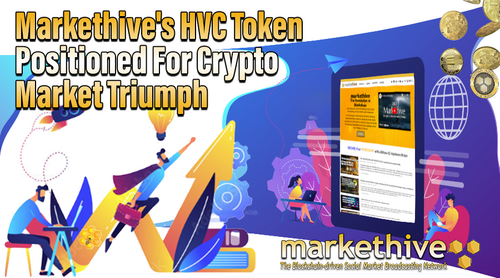


Image Source: Pixabay
Ripple breaks ground in Japan, SBI Group to use XRPL for supply chain solutions
Ripple has partnered with HashKey DX to introduce XRP Ledger-based blockchain solutions to the Japanese market.
SBI Group will become the first Japanese corporation to use XRP Ledger (XRPL) blockchain supply chain solutions as Ripple looks to drive enterprise blockchain solution use cases in Japan.
SBI will break new ground in Japan after Ripple announced it has entered a strategic partnership with Tokyo-based consulting firm HashKey DX. The latter is set to introduce XRPL enterprise solutions to the Japanese market.
HashKey will collaborate with Ripple and SBI Ripple Asia, a joint venture between SBI Holdings and Ripple, to build and introduce supply chain finance solutions in the country. The tools will be built on the XRPL, the decentralized blockchain network initially developed by Ripple Labs. Read More
Ethereum Restaking Protocol EigenLayer Reveals Token and Airdrop Plans
The Eigen Foundation will begin distributing EIGEN tokens on May 10, but US and VPN users will be blocked.
The Eigen Foundation, which supports the Ethereum restaking protocol EigenLayer, published details about its upcoming token airdrop on Monday.
In cryptocurrency, staking refers to locking up crypto holdings to support a blockchain's security, integrity, and efficiency by helping to validate transactions. EigenLayer facilitates Ethereum (ETH) “restaking,” which is the ability to use a single stake across multiple blockchains.
Based on a snapshot of eligible wallets taken last month, the Eigen Foundation said the EIGEN token airdrop will take place between May 10 and September 7, spanning 120 days. The initial "stakedrop" allocates 5% of the total token supply to users who engaged in staking activities as of March 15.
Eligibility for the drop includes people who staked directly with EigenLayer or through liquid restaking tokens (LRTs). The first “Season 1” airdrop, the Eigen Foundation said, consists of two phases, with 90% of tokens going to users who meet the initial eligibility requirements and remaining allocation distributed in a later phase. Read More
Coinbase Plugs Into the Bitcoin Lightning Network
Users of the top crypto exchange can choose the alternate network for faster and cheaper transactions than the Bitcoin mainnet.
Top cryptocurrency exchange Coinbase is rolling out support for the Bitcoin Lightning Network, the company said on Tuesday. Progressively available on both its mobile and desktop platforms, Coinbase users will be able to choose between sending Bitcoin using the Bitcoin mainnet or the Lightning Network.
Launched in 2018, the Lightning Network is a layer-2 protocol built on top of the Bitcoin network. The Lighting Network allows users to move BTC between wallets without needing to interact directly with the Bitcoin blockchain.
Facilitating Coinbase’s integration of the Lightning Network is Los Angeles-based Lightspark. Established in 2022, the company offers enterprise-facing Lightning Network products.
“There are a couple of considerations that we had in mind when determining the best way to add Lighting support,” Coinbase protocol specialist Viktor Bunin told Decrypt. Read More
Gold, real estate and more: Legal infrastructure for real-world asset tokenization industry
Legally connecting physical assets with digital tokens can enhance global trade efficiency and asset liquidity by streamlining transactions and broadening access to asset markets.
Mattereum provides a legal framework to bridge real-world assets with blockchain technology, potentially streamlining global trade and improving asset liquidity.
Crypto is on the rise in 2024, and bull is a buzzword again. The approval of spot ETFs in the United States is also ushering in a new era of crypto adoption and putting a new emphasis on real-world assets (RWA).
RWA tokens, which are essentially tokens with real-world representatives, promise to bridge crypto and TradFi, improving the liquidity, accessibility and efficiency of tokenized assets. Moving trade to the internet is estimated to generate $280 billion of savings annually, and RWA tokenization offers a blockchain-based solution to achieve this goal. Read More

As the crypto industry gears up for the next bull run, Markethive isn't just sitting on the sidelines – it's rolling up its sleeves and diving into the action, poised to shine on the high-performance stage of the Solana blockchain. At the heart of this venture is Markethive's native cryptocurrency, Hivecoin (HVC), a key player ready to unlock the industry's full potential. Solana's reputation for speed and scalability provides the perfect playground for Markethive's ambitious goals.
Cryptocurrency and blockchain have shaken the business world, creating a new era of possibilities. And Markethive? Well, it's not trailing behind; in fact, it's leading the charge. This unique platform, grounded in blockchain technology, caters to entrepreneurs, marketers, and business owners, offering them a suite of tools and services to navigate this brave new world.
Now, to make things even more exciting, Markethive has introduced the HVC into the mix. This token isn't just any token; it's intricately woven into the fabric of Markethive's ecosystem. And guess what? It's riding the Solana blockchain wave. Why does that matter? Buckle up because we're about to dive into the juicy details of why this move is a game-changer.
Ready to uncover the magic behind Markethive's strategic choice? Let's jump into the discussion and explore the manifold benefits of having the HVC token on the Solana blockchain. Read More
Web3 gaming needs to shift from play-to-earn to ‘play-and-earn’ — Bitget
The industry could see a shift toward player-centric Web3 games this cycle as Web2 founders enter the GameFi space, according to Bitget’s managing director.
Web3 games should shift their focus from play-to-earn to “play-and-earn” to attract new mainstream crypto adopters.
The issue is that most Web3 games focus solely on the economic elements, disregarding the gameplay, says Gracy Chen, managing director of the trading platform Bitget.
Web3 games in 2024 will need to focus on gameplay to attract Web2 gamers, Chen told Cointelegraph in an interview:
“If you look at Web2 games versus GameFi projects, why should people play the GameFi project? Previously, it was mainly due to play-to-earn, as we’ve seen this with Axie Infinity, but there should be a shift from play-to-earn to play-and-earn.” Read More
What happens to lost Bitcoin?
Bitcoin is considered lost on the blockchain when the owners of the assets are unable to exercise control over it.
Bitcoin (BTC) is a decentralized digital currency that stores its records among a distributed set of nodes that collectively represent a public ledger, also known as a blockchain. On the Bitcoin blockchain, private wallet users have a public address while holding a private key that enables them to control assets held within that address.
There can only be 21 million BTC in circulation; this is designed and coded within the protocol. Bitcoin’s design is deflationary, where, over a period of time, the scarcity of the asset increases. Bitcoin’s value is partly maintained by a maximum limit on the total amount of Bitcoin that can exist and by periodically decreasing the rewards (via Bitcoin halving) given to miners for bringing new Bitcoin into circulation.
Any lost Bitcoin further adds to the deflationary process and contributes to the scarcity of available Bitcoin. It’s difficult to estimate the exact number of lost Bitcoin, considering that wallets could just be truly dormant. Read More
Bitcoin.org Owner Cobra Warns About Illegalization of Bitcoin Self-Custody in the US
Cobra, the pseudonymous owner of the Bitcoin.org domain, has warned about the upcoming perils and limitations that the self-custody of bitcoin might face in the forthcoming eras. For Cobra, governments of the world and the U.S. might be preparing to issue a total ban on bitcoin self-custody, meaning that citizens will not be able to have bitcoin without the support of a custody middleman.
In social media, Cobra declared:
If you think they won’t eventually come for self custody of Bitcoin you haven’t been paying attention.
Cobra made an analogy with how the U.S. illegalized private ownership of gold circa 1930 through Executive Order 6102, which explicitly banned “the hoarding of gold coin, gold bullion, and gold certificates within the continental United States.” “Private ownership of gold used to be illegal in the United States even though keeping a large amount of wealth in gold is impractical,” he explained. Read More
Top Solana Decentralized Exchanges (DEXs) to Watch in 2024
Decentralized exchanges (DEXs) are the backbone of Solana’s bustling DeFi ecosystem. Here’s a thorough guide on the best ones.
The Solana blockchain is home to hundreds of decentralized applications (dApp) that leverage the blockchain’s high throughput, scalability, and composability.
There’s a reason it’s one of the largest DeFi ecosystems, with billions in total value locked.
Decentralized exchanges (DEXs) underpin this bustling community and account for the lion’s share of the TVL on Solana. They provide users with the necessary tools to trade on-chain, swap between different tokens, offer liquidity, and much more.
In the following, we attempt to provide comprehensive information on the best Solana DEXs, including important information about their protocols, but also:
Key features
Trading fees: critical detail when trading on-chain
Supported self-custody wallets and more
Solana has several aspects that make it an ideal chain for DEXs. It has given birth to some of the best-known decentralized trading platforms, not just within its own ecosystem but within the entire industry. Read More
Disclaimer: These articles are provided for informational purposes only. They are not offered or intended to be used as legal, tax, investment, financial, or any other advice.